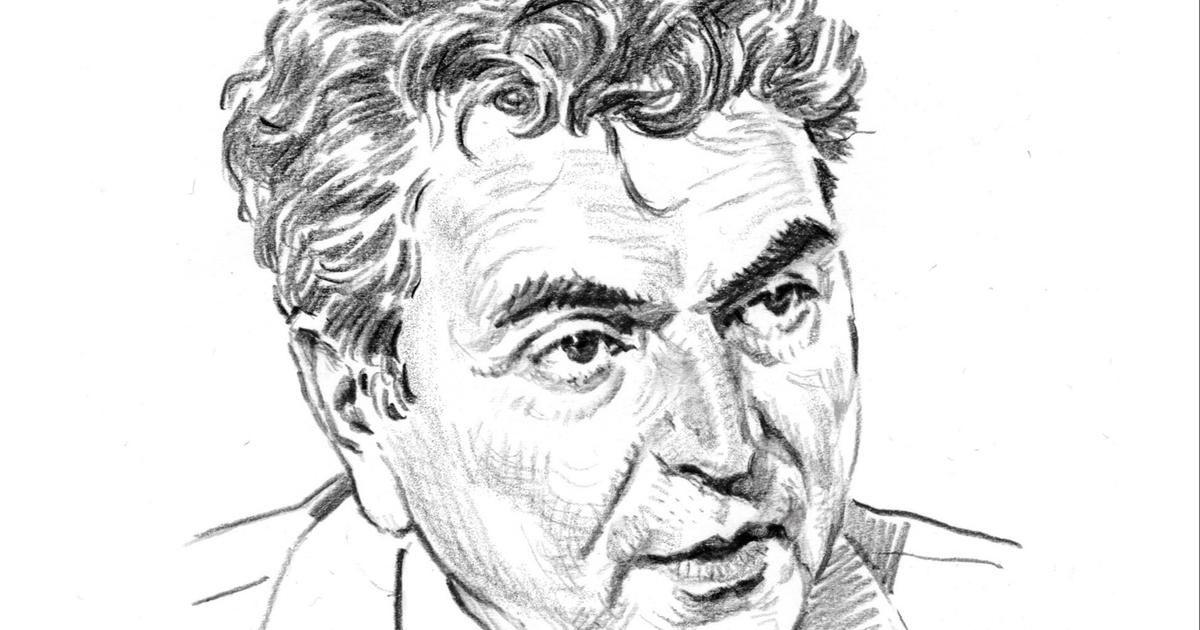Icon: enlarge
French President Macron at the launch of a new nuclear powered aircraft carrier in Le Creusot on Tuesday
Photo: LAURENT CIPRIANI / AFP
The hull is said to weigh 70,000 tons and be 280 meters long: When Emmanuel Macron presented the construction plans for the future flagship of the French Navy on Tuesday this week, it not only signaled military strength.
The French nuclear industry, an important cornerstone of national identity since the 1950s, should also shine in new splendor.
Macron's giant ship, a new aircraft carrier that will one day replace the "Charles de Gaulle", is powered by nuclear power.
"Our ecological and energetic future also depends on nuclear energy," said Macron at his kick-off speech in the industrial town of Le Creusot, an important production site for components for civil nuclear power plants and nuclear weapon systems.
At the same time Macron sends a message to the EU.
The heads of state and government of the 27 EU member states, the so-called European Council, will meet in Brussels from Thursday afternoon.
In addition to Covid-19, the most important topic on their agenda is the new EU climate strategy.
The federation of states should consume 55 percent less CO₂ by 2030.
At the summit, the Commission wants to tie down this goal.
Negotiations are likely to be tough, because recently a group of apostates made their agreement conditional on the climate target.
According to internal documents, Poland, the Czech Republic, Hungary, Romania and Bulgaria are calling for more technology openness when it comes to CO2 savings.
Nuclear power and natural gas should also be considered climate savers.
More money for France's nuclear industry from EU pots?
With France, the Eastern Europeans have gained an ally.
At a meeting of ambassadors on November 26th, the French called for more nuclear power in the EU's climate strategy, it said in Brussels.
The motive for this is quite clear: depending on how the EU formulates its climate strategy, France's nuclear industry can hope for more or less aid.
If nuclear power gets more weight in the EU climate strategy, French nuclear companies could apply for funds from the EU bailout package and from some of the pots of the Green Deal, it is said.
Some of the national subsidies that France is planning would also be easier to implement.
Both would benefit the heavily indebted state-owned company EDF, the second largest electricity producer in the world.
According to a report by the French Ministry of Economic Affairs, he was squeezed by around 41 billion euros in debt at the end of 2019.
If nothing changes in the current nuclear course, the power giant should bring it to almost 57 billion euros in debt by 2028.
The EDF liabilities are now even driving up France's national debt.
Other nuclear power companies are not doing much better either.
The industry crisis also gnaws at national pride.
Above all, nuclear energy means independence for France, which, unlike its European neighbors, has hardly any natural resources for energy supply.
Many jobs also depend on industry, and France's nuclear researchers are considered to be world leaders.
The French nuclear hype has also left its mark on culture.
Some power plants offer fun for children, for example handicraft afternoons in the shade of cooling towers.
Last summer, Macron devised a controversial rescue plan for the still popular industry.
He wants to declare that EDF's nuclear power is a good of general interest so that it can henceforth be sold at a fixed price of 43 to 49.6 euros per megawatt hour.
Around 70 percent of the electricity generated in France, i.e. the majority of the electricity market, would be affected.
Macron also wants to pay high compensation to older nuclear power plants for "lost income" if they are scrapped after less than 60 years.
Both are far-reaching interventions in energy policy.
The European Commission's Directorate-General for Competition would have to approve it first.
Accordingly, Macron wants to negotiate the EU's eco-strategy in a nuclear-friendly way.
It will be decided in Brussels whether he will succeed.
So far, resistance to the required atomic revival has been rather low.
Only Luxembourg and Austria have explicitly opposed this.
The federal government has not yet commented.
Icon: The mirror




